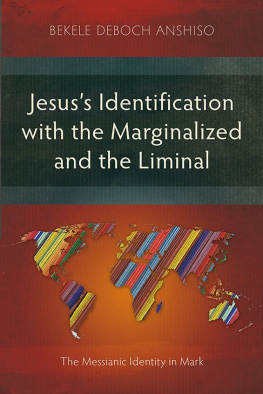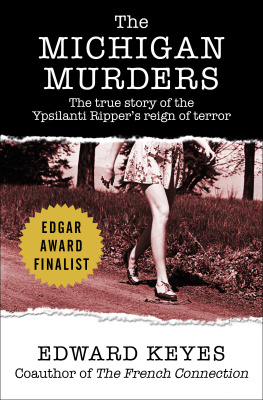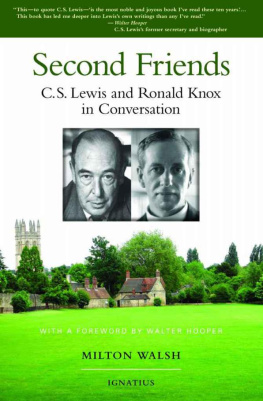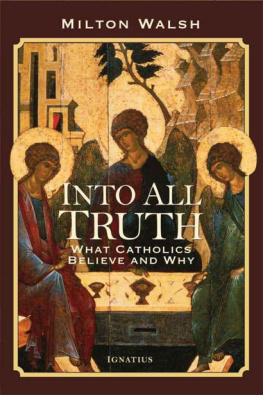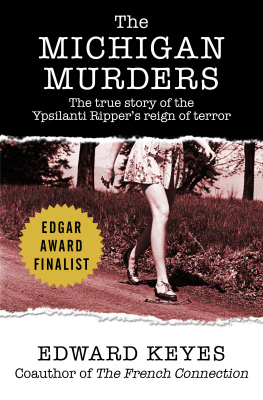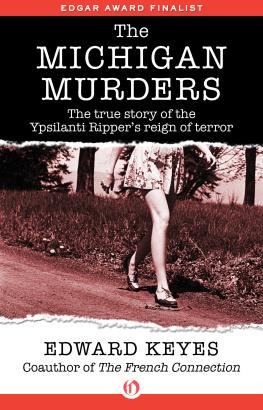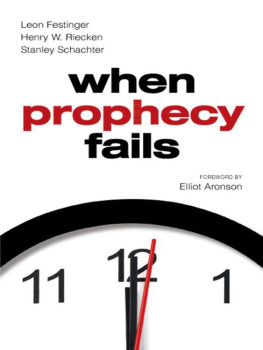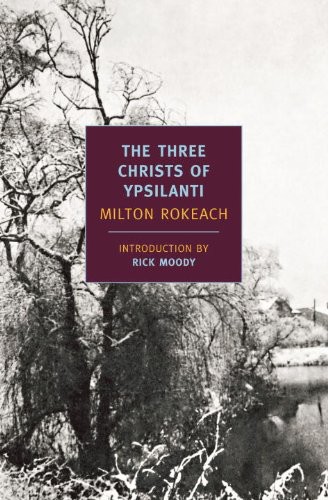NEW YORK REVIEW BOOKS
CLASSICS
THE THREE CHRISTS OF YPSILANTI
MILTON ROKEACH (19181988) was born in Hrubieszw, Poland, and at the age of seven moved with his family to Brooklyn. He received his BA from Brooklyn College in 1941. In the same year he began in the fledgling social psychology program at the University of California at Berkeley, but his studies were interrupted by a stint in the U.S. Army Air Forces Aviation Psychology Program. He returned to Berkeley in 1946 and received his PhD in 1947. Rokeach became a professor of psychology at Michigan State University and subsequently taught at the University of Western Ontario, Washington State University, and the University of Southern California. His famous psychological study The Three Christs of Ypsilanti (1964) has been made into a screenplay, a stage play, and two operas. His other major books are The Open and Closed Mind (1960), Beliefs, Attitudes, and Values (1968), and The Nature of Human Values (1973). Rokeach received the Kurt Lewin Memorial Award from the Society for the Psychological Study of Social Issues in 1984 and the Harold Lasswell Award from the International Society of Political Psychology in 1988.
RICK MOODY was born in New York City in 1961. He is the author of five novels, three collections of stories, and a memoir, The Black Veil. His work has been widely anthologized. He has taught at Bennington College, SUNY Purchase, New York University, and the New School for Social Research. He lives in Brooklyn, New York.
THE THREE CHRISTS OF YPSILANTI
A Psychological Study
MILTON ROKEACH
Introduction by
RICK MOODY
NEW YORK REVIEW BOOKS

New York
Contents
Introduction
T HIS INTRODUCTION takes as its presupposition the idea that the treatment of chronic mental health problems in the United States of America is disgraceful. Insofar as there is a policy here, the policy dates back to 1955, give or take, the year in which the removal of mentally ill persons from state-run psychiatric facilities first commenced: a policy known as deinstitutionalization.
Deinstitutionalization wore a humane face, in theory. The majority of the publicly funded psychiatric hospitals had had their budgets crimped over the years by budget balancers and psychiatric nonbelievers. Deinstitutionalization was born in the belief (incorrect, as it turned out) that community-based mental health care would serve as an alternative. It would be cheaper, not to mention less stigmatized and incompetent, than institutional care. The government, it was imagined, didnt belong in this business.
And yet, after half a century of deinstitutionalization, a process much expanded over the years and particularly favored under the administration of Ronald Reagan, the government now finds itself back in the mental health business, whether the public is aware of it or not, in that the jails and prisons of the nation, beloved of the tough-on-crime set, now house a significant and growing number of troubled persons who, in these state-sponsored settings, receive little or no treatment. Many other sufferers live on the streets of our cities. The police, agents of local government, regularly interact with these mentally ill persons, trying to get them into shelters and community-based mental health programs from which they are rapidly discharged, with the specifics of medication and treatment left to the ill themselves.
I could address this topic at great length, but if I did so, I would fail to introduce the book we have before us, The Three Christs of Ypsilanti by Milton Rokeach, a powerful, strange, and paradoxical story from another time, the time before deinstitutionalization. The time when it was reasonable to house the mentally ill somewhere where they could be shielded, to a limited extent, from the more florid tendencies associated with their disabilities. The time when housing them, even if imperfectly, was considered a just use of the resources of the people because it made life easier for many of the ill, for their relatives, and for all of us, especially those in urban settings, who have since, however, become used to stepping over bodies.
Rokeachs very simple proposal was to see what would happen if you assembled three men, each of whom believed that he and he alone was Christ himself, and had them keep company with one another. These men were long-term inpatients, and Rokeach wanted to see if this procedure would free them from a shared but perhaps incompatible illusion. At the time of Rokeachs experiment, there was support for such an effort to formulate a new treatment option. Novel approaches to the treatment of the mentally ill appeared throughout much of the twentieth century, in the work of Freud, Jung, Laing, Reich, Lacan, Bateson, and others. Who is to say that these ideas were wrong, simply because they did not effect a full-scale remission of symptoms? The ideas were more radical than those of the psychiatric mainstream of the time, and so were the sources of the ideas.
Rokeachs experiment was prompted in part by a text from Voltaire, on the subject of one Simon Morin, burned at the stake in 1663:
He was a deranged man, who believed that he saw visions; and even carried his folly so far as to imagine, that he was sent from God, and gave out that he was incorporated with Jesus Christ.
The parliament, very judiciously, condemned him to imprisonment in a mad-house. What is exceeding singular, there was, at that time, confined in the same mad-house, another crazy man who called himself the eternal father. Simon Morin was so struck with the folly of his companion, that his eyes were opened to the truth of his own condition. He appeared, for a time, to have recovered his right senses.
One of the splendid things about The Three Christs of Ypsilanti is that, drawing inspiration from literature, it takes on literary qualities itself, in that literature, first and last, aims for the meaningful description of consciousness, of personhood. Rokeach, a social psychologist rather than an MD, is above all interested in the forms personhood can take, and it is with considerable flair that he limns the dramatic and very moving narrative of his experiment.
The dialogue with literature conducted within The Three Christs of Ypsilanti lofts it into the company of such great psychological and medical case histories as Freuds Dora: Fragments of an Analysis of a Case of Hysteria, A. R. Lurias The Man with a Shattered World, Oliver Sackss Awakenings, Daniel Paul Schrebers Memoirs of My Nervous Illness.
These case histories introduce us to unmistakable human beings with genuinely human difficulties, and so does Rokeachs. The three Christs are three great characters. Clyde Benson,[] Then there is Joseph Cassel, from francophone Quebec, a would-be writer and (in all likelihood) repressed gay man in his fifties, who has endured a childhood of abuse and physical violence at the hands of his father, and whose speech, full of psychotic rambling, is also rather ornate and lovely in style:
Dear Dr. Yoder: I do so want to thank you for the nice letter, which you have forwarded to me. I do so wish to thank you, withal, for the .50 you have also sent to me! Thank you for praising me on my choicy perusal of literature.
Finally, there is Leon Gabor, the youngest, highest functioning, and most heartbreaking of the three, who has suffered greatly from the compulsive religiosity and social estrangement of a mother who was also probably psychotic. At the time of Rokeachs study, Leon has been hospitalized just five years, the others much longer. Leons expostulations are prickly, engaged, morose, manipulative, hilarious, sad, and very, very human:


